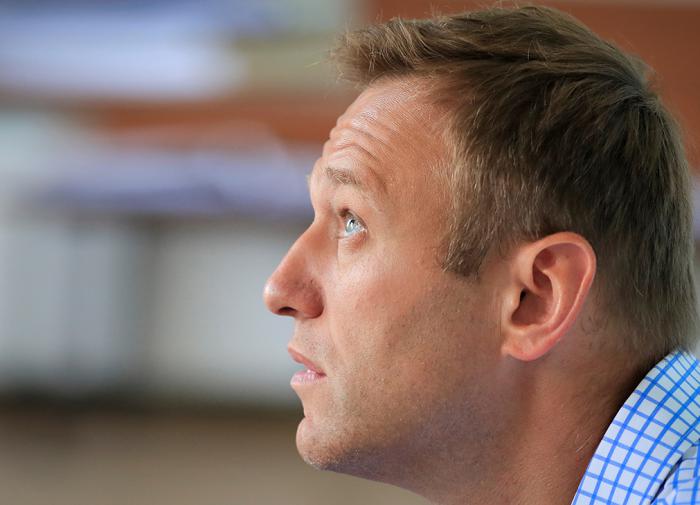The Kremlin currently sees no reason to initiate a criminal investigation into the alleged poisoning of Aleksei Navalny, and considers accusations against the Russian authorities nothing but "empty noise," said Dmitry Peskov, press secretary of the Russian president.

"First, one needs to identify the substance and establish what caused this condition. There must be a reason for the investigation. For the time being, the patient is in a coma," said Peskov, adding that the investigation should be based on the fact of poisoning with a particular substance.
Peskov noted that the version of Navalny's poisoning can only be viewed as one of the versions of what happened to the opposition politician. According to Putin's press secretary, there are "many other medical versions", including taking certain medications and body's response to certain conditions.
"All these versions were reviewed by Omsk doctors and specialists from Moscow in the very first hours after the incident," the Kremlin spokesman said, stressing that Russian doctors did not find signs of the poisoning in Navalny's body.
Dmitry Peskov criticized the West for trying to present the version of Navalny's poisoning as the only version of what happened to him, and noted that the medical analytics on the issue among Russian and German doctors is the same, "but the conclusions are different."
"We do not understand why our German colleagues are in such a hurry to use the word "poisoning," said Peskov. He stressed that Russian doctors considered the version among the first too, but "the substance has not been identified yet."
He added that Russian doctors support the initiative to exchange information and materials with their German colleagues on the situation with Navalny and are ready to provide the samples of his first analyses. He called accusations against the Kremlin and personally President Vladimir Putin of involvement in the poisoning of Navalny "empty noise" that should not be taken seriously.
"These accusations cannot be true in any way and are rather, I would say, empty noise, so we do not intend to take them seriously," the Kremlin spokesman said. According to Peskov, one should treat the press release from the Berlin clinic about the situation with Navalny without making "loud empty statements." "One needs to analyze what has been said and written. We have not learned anything new from this statement," Peskov said.
According to Peskov, the Kremlin had consulted the Russian doctors about the statement from Charite clinic in Berlin.
"Atropine, of which the Germans spoke, which they are administering now, was administered in the first hour of Navalny's stay in intensive care in Omsk. The decrease in the level of cholinesterase may happen for various reasons, including with the use of various drugs - the drugs that lower the level of cholinesterase. One needs to find out what caused its decrease," Peskov noted, adding that neither Russian nor German doctors have identified the substance with which Navalny could have been poisoned.
The incident with Navalny was not the first attack on critics of Russian President Vladimir Putin. One may recall the poisoning of journalist Vladimir Kara-Murza and Pussy Riot leader Pyotr Verzilov, as well as the assassination of Boris Nemtsov.
"It is an open secret that poisonings occur in any country of the world on a daily basis. Here, if we talk about a specific case, one needs to have accurate information. I do not have this information," Peskov stated in the past about the poisoning of Pyotr Verzilov. He also said that he did not consider assassination or attacks against the critics of the Russian president in different countries of the world to be a trend.
Earlier, German Chancellor Angela Merkel and Foreign Minister Heiko Maas issued a joint statement, in which they called on the Russian authorities for a transparent and comprehensive investigation into the circumstances of the incident with Aleksei Navalny. Merkel and Maas noted that, "taking into account Navalny's prominent role among the political opposition in Russia," the authorities should "investigate all circumstances in detail on the basis of full transparency, identify and punish those responsible.
No comments :
Post a Comment